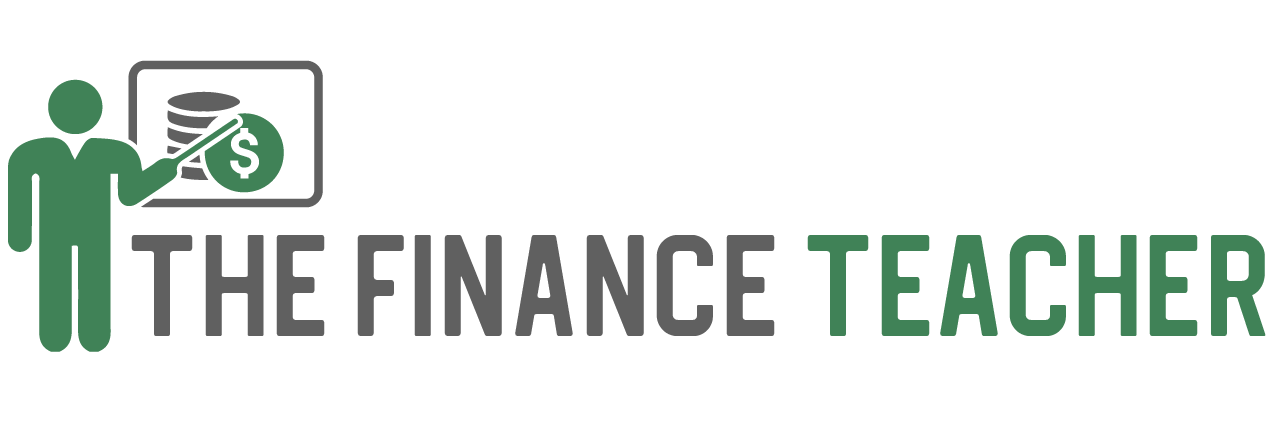Debt-Free and Determined: A Guide to Paying Your Way Through College Without Loans
By Damian Olsen at www.wellfinanced.info
Table of Contents
ToggleThere’s no sugarcoating the financial challenges of attending college in today’s economy. With tuition rates climbing and the cost of living rising alongside them, the thought of taking on student loans feels more like a trap than an investment. But here’s the thing: it is possible to get a degree without burying yourself in debt. If you’re determined to pay your way through school, the journey may be demanding, but it’s far from impossible. In fact, it can lead to greater financial stability, stronger time-management skills, and a deep sense of accomplishment that few graduates ever feel. Here’s how to make it happen.

Start With Scholarships and Grants
Before spending a dime of your own money, squeeze every available dollar out of scholarships and grants. This kind of funding is essentially free money—awarded based on academic performance, community involvement, special talents, or even the city you grew up in. The key is applying often and early, and not limiting yourself to major, high-profile awards. Local businesses, non-profits, and alumni associations frequently offer scholarships that fly under the radar. You can also reapply for new scholarships every year you’re in college; don’t just assume freshman year is your only shot. Treat the application process like a part-time job. The more effort you put in now, the fewer financial burdens you’ll face later.
Capitalize on Work-Study Opportunities
Work-study programs are a golden ticket for students willing to earn their education through part-time work on or near campus. These jobs are usually subsidized by the federal government, meaning your school pays you out of a special fund that doesn’t eat into their own budget. Positions are often flexible and designed with students in mind—think library assistant, lab monitor, or peer tutor. The hours won’t be enough to cover everything, but they can help you knock out books, groceries, or rent. More importantly, work-study jobs let you build your resume, grow professional networks, and keep your debt at zero.
Learn on Your Own Terms
In recent years, online degrees have revolutionized the traditional college model. They offer an affordable and adaptable way to earn credentials in areas like accounting, communication, and business management. If you’re eyeing a business degree for entrepreneurship, you’ll learn the fundamentals of running your own operation—while still having the time to build one on the side. Online programs also allow you to hold a full-time job, eliminating the need to choose between earning and learning. The autonomy and affordability of these programs can be a lifesaver for students determined to pay as they go.
Turn Your Skills Into a Side Gig
Side hustles aren’t just trendy—they’re necessary. Whether you’re freelancing as a graphic designer, offering tutoring sessions online, flipping thrift store finds on eBay, or launching a small Etsy shop, creating your own stream of income is one of the most practical ways to fund your college journey. The trick is to build around your existing strengths and available time. If you’ve got a knack for writing, try ghostwriting blog posts. If you’re handy with a camera, offer affordable portraits to other students. Many of the most successful student-run side gigs start small, but they grow—and they often continue paying off well after graduation. This entrepreneurial mindset builds a skillset that employers love and future businesses depend on.
Make In-State Schools Your First Option
You don’t have to cross the country to find a great education. In-state public universities often offer a quality education at a fraction of the cost compared to out-of-state or private institutions. Residency benefits can lower your tuition by thousands of dollars each year. While it’s tempting to equate prestige with quality, most employers care more about your experience, skills, and hustle than the name on your diploma. By choosing an in-state school, you’re positioning yourself to graduate faster and with far less financial baggage. You also open the door to better networking, local internships, and alumni connections in your region—things that make post-grad life much easier.
Find Employers Who Invest in You
If you’re already working—or planning to while in school—seek out companies that offer tuition reimbursement. Many larger employers, from retail giants to healthcare providers, will pay part or all of your tuition if you’re studying a subject related to their field. In return, they usually ask you to stay employed with them for a certain amount of time. Some companies even offer this benefit to part-time workers. While not every job will fit into your schedule, this can be a game-changing strategy if you’re juggling work and school anyway. It’s worth targeting job opportunities that invest in your growth, not just your hourly labor.
Think Ahead With Smart Budgeting
Most college students don’t make budgeting a priority until things go wrong. But if you’re paying your way through school, you can’t afford to wing it. Start tracking every source of income and every dollar spent. Use apps like Mint or YNAB to build a clear picture of your finances and plan for future expenses like tuition due dates, textbook purchases, and rent increases. Learn to cook meals instead of eating out. Walk or bike to class instead of paying for a parking pass. Being proactive with your money isn’t just about surviving college—it’s training for long-term financial independence.
Paying your own way through college is tough, but every smart choice stacks up. From maximizing free money through scholarships to slashing housing costs and launching side gigs, every step you take moves you closer to a debt-free diploma. With a strong support system, financial discipline, and the right mix of opportunities—like work-study jobs or tuition reimbursement—you can get through school without being weighed down by interest rates and loan payments. And if you’re looking for extra flexibility, earning an online degree can help you juggle work and studies without sacrificing quality. It won’t be easy, but graduating without debt is more than a financial win—it’s a legacy you build one decision at a time.
Unlock the secrets to financial success with The Finance Teacher and start your journey to wealth with our free resources and eBook today!
Image via Freepik
Stepping into financial independence is a pivotal moment for young adults, filled with opportunities and responsibilities. As you transition to managing your own finances, it’s essential to adopt strategies that will secure your financial well-being and maybe even the path to financial freedom. This article offers insights into effective financial planning, from education and debt management to insurance and investment strategies. Making informed decisions can lay a strong foundation for a prosperous future.
Prioritizing High-Interest Debt for Financial Freedom
As you step into financial independence, focusing on repaying high-interest debts can be a game-changer for your financial health. By targeting loans and credit cards with the highest interest rates, you can significantly reduce the amount of money lost to interest over time. This approach, known as the avalanche method, involves making minimum payments on all debts while directing any extra funds toward the most costly debt. Although it might seem challenging, especially with large balances, this strategy ensures you first address the most financially burdensome obligations.
Building a Strong Credit Foundation
Understanding how to manage your credit score is essential. Start by ensuring you pay your bills on time each month, as punctuality is key to maintaining a healthy score. Reducing high balances on credit cards can also quickly improve your credit standing. Regularly check your credit reports for errors and dispute any inaccuracies to keep your profile accurate. Consider using tools to enhance your score by demonstrating responsible financial behavior. Limiting new credit applications can prevent unnecessary hard inquiries that negatively impact your score.
Maximizing Your Financial Independence with Online Education
Enhancing your financial independence can be effectively achieved by pursuing further education, such as a Master of Business Administration. Online degree programs offer a flexible solution, allowing you to balance work or family responsibilities while advancing your education. Choosing an accredited institution with competitive tuition rates is essential, as this can significantly impact your return on investment. Many online programs emphasize practical and industry-specific skills, which can be directly applied to your current job, increasing your value to employers.
Choosing the Right Debt Repayment Strategy
Understanding debt repayment strategies is crucial when embarking on your journey to financial independence. Two popular methods are the snowball method, which focuses on paying off your smallest debts first, and the avalanche method, which targets debts with the highest interest rates. The snowball approach can provide quick psychological wins as you see debts disappear, while the avalanche strategy may save you more money over time by reducing the total interest paid. Your choice between these methods should align with your financial goals and personal motivation, whether you prioritize immediate satisfaction or long-term savings.
Protecting Your Belongings with Renter’s Insurance
When stepping out on your own, securing renter’s insurance is a smart move to protect your personal belongings from unexpected events like theft or fire. Unlike your landlord’s policy, which only covers the building, renter’s insurance ensures your possessions, such as clothing, electronics, and furniture, are safeguarded. For a modest monthly fee, this insurance can prevent significant financial loss, especially if replacing your items after a disaster costs more than your annual premium. Opting for “replacement cost coverage” is particularly beneficial, as it reimburses you for the cost of new items rather than their depreciated value.
Optimizing Financial Growth with Compound Interest
Understanding compound interest is essential for young individuals stepping into financial independence. This concept allows your money to grow by earning interest not only on your initial investment but also on the accumulated interest over time. By starting early, you can take advantage of the time value of money, allowing your investments to grow significantly over the years. For example, investing a modest amount consistently can lead to substantial wealth accumulation. Successful investors have harnessed this principle to achieve remarkable financial success.
Unlocking Passive Income for Young Entrepreneurs
Starting an online business can be a rewarding way to generate passive income, especially for young people venturing out on their own. You can create an online store showcasing your creativity and entrepreneurial spirit by leveraging platforms. Whether you’re an artist or designer, printing-on-demand services allow you to sell customized products like t-shirts and posters without the burden of inventory management. Similarly, dropshipping offers a hassle-free way to sell products, as suppliers manage everything from production to shipping.
Taking control of your financial future requires careful planning, wise decision-making, and a commitment to long-term stability. Building a strong foundation starts with educating yourself about budgeting, saving, and responsible spending. Managing debt wisely, avoiding unnecessary expenses, and exploring multiple income sources can provide greater financial security. Developing healthy financial habits early will help you navigate unexpected challenges and create growth opportunities. You can confidently work toward economic independence while pursuing your goals with the right approach.
Unlock the secrets to financial success with The Finance Teacher — your go-to resource for mastering money management and building wealth at any age.
This article was written by Damian Olsen. Check out his content at https://wellfinanced.info/



